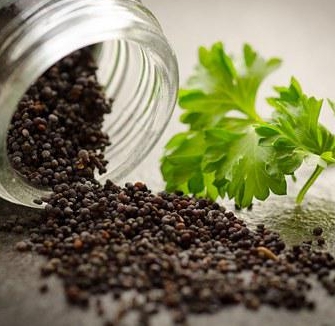
Sometimes we have to admit to ourselves that our primal nature can run more deeply than we think. Often times, we as humans, tend to focus on the negative aspects of life that impact us. This is not necessarily coming from a place of malintent, or an active choice to be negative, but it is simply survival. We tend to focus on the things that could have an adverse impact on our ability to sustain life.
Back in the day of our ancestors, this looked something like this: if it’s a rainy day, I can’t build a fire, and therefore it will be much more difficult to make dinner. Difficulty making dinner and nourishing our bodies has a direct correlation to the ability to survive. Thus, we may have seen the rain that particular day as something negative that is causing additional stress in our life, as opposed to remembering that rain also brings life in the form of water and food.
The things that cause us stress in today’s modern world look a little different than they did for our ancestors, however, they are still rooted in a survival instinct. Stress at work may affect other aspects of your life, such as your perception of financial security, or your relationships at work and home. While these connections may not seem as obvious as the aforementioned example that would have caused stress to our ancestors, it still taps into those survival instincts that are integral to each and every one of us.
This instinct and tendency is designed to help us learn from and remember situations that had the potential to endanger our lives so that we can avoid them in the future.
Despite this natural tendency as humans to focus on the negative, we have the ability within us to change our perspective, through the expression of gratitude.

Gratitude
“It is not the joy that makes us grateful.
It is the gratitude that makes us joyful.”
-David Steindl-Rost
The concept of gratitude is much more highlighted during the month of November. Across many cultures around the world, this time of year (at least in the northern hemisphere) marks the end of the harvest season. Usually, by the onset of this month, there will be no more harvesting of crops and the coming winter is upon us. It is during this time that many cultures choose to express thanks for the blessings of sustenance they were given during the growing season and to have food that can be preserved and consumed throughout the winter. This is also, of course, the month associated with Thanksgiving. Feasting and festivals are common during November, and expressing thanks is the core element of these celebrations.
To practice gratitude is the act of expressing thankfulness and appreciation for what we have in our lives. This, of course, does not have to extend solely to material possessions, but can be expressed for experiences, memories, or perhaps even feelings we experience day to day. Additionally, we also don’t have to solely express gratitude for things we currently have, but can also express gratitude for things we have had in the past, and the things we know to come in our future.
It is important to recognize that the practice of gratitude does not mean we have to go about our day pretending that everything is peachy-keen. As mentioned by the article titled “What Does it Mean to Be Grateful?” by Mindful Magazine, “Living your life with gratitude means choosing to focus your time and attention on what you appreciate. It is not to block out difficulties, but to approach those difficulties from a different perspective. Appreciation softens us. It soothes our turbulent minds by connecting us with the wonderfully ordinary things, great and small, that we might otherwise take for granted.”

Benefits of Practicing Gratitude
Earlier we mentioned how we all have the power within us to change our perspective by expressing gratitude. This is because choosing to express gratitude has actual impacts on our psyche itself. Matter of factly, as pointed out by Psychology Today, there are seven common scientifically-proven benefits that are well known to be associated with a gratitude practice:
- Gratitude opens the door to more relationships. When one is willing to express thanks for the actions of others, this inherently makes one more likable, and this can provide the opportunity for new friendships or relationships.
- Gratitude improves physical health. It probably is not surprising that someone who expresses gratitude is likely someone who shows respect and appreciation for their health. As a result, it is likely that someone who practices gratitude is someone who is more willing to have regular check-ups and take better care of their body to ensure the continued sustainability of their health.
- Gratitude improves psychological health. It has been proven through numerous studies that a consistent gratitude practice can decrease more negative emotions and thoughts and increase positive ones. By expressing more gratitude day today, it can help alleviate such things that affect our mental health like depression.
- Gratitude enhances empathy and reduces aggression. When one is grateful, it is less likely that they will focus on the negative or unkind actions of others, and instead will choose to focus on the positive ones. Practicing gratitude makes us more likely to be tolerant of others.
- Gratitude allows people to sleep better. Practicing gratitude can actually have positive benefits for our ability to fall asleep, according to a 2011 study.
- Gratitude improves self-esteem. People who express gratitude have a decreased likelihood of comparing themselves to others. In an age where this is easy to do thanks to things like social media, a gratitude practice can ensure we are more present and happy where we are right now, and not leave us wishing for more.
- Gratitude increases mental strength. Increased resilience and expression of gratitude can go hand in hand and create a powerful and dynamic duo. A gratitude practice can allow one the ability to recognize the good in adversity, which can, in turn, have profound impacts on one’s ability to overcome stress and trauma.
How to Implement a Gratitude Practice in Your Life
- Take advantage of the small moments. We get it. Our daily lives can get incredibly busy. So don’t beat yourself up, and instead take any small moment you can to express gratitude. Perhaps incorporate it into your yoga practice as your mantra. Or silently express thanks as you sit down to eat. Maybe if you’re feeling overwhelmed at work, take a few seconds to take in a deep breath and write down three things you’re thankful for on a sticky note. Make the moments count!
- Start a gratitude journal. It is likely you have heard of this tool before. There are a multitude of readily made journals that exist out there with writing prompts if that is your jam, but keep in mind a gratitude journal does not have to be anything fancy. It can be any old notebook, or perhaps just using an app on your phone. Choose a time of day to write down 10 things you are grateful for, and reflect on this list.
- Use gratitude to change a negative into a positive. This recommendation is more of a marathon than a sprint and is something that comes more naturally with practice. At the beginning of this post, we discussed the fact that it can be easier to focus on the negative experiences we encounter in life. However, we can make an effort to change this focus. Anytime you are experiencing a negative action – let’s say perhaps doing the dishes – instead of choosing to perceive this action as a mundane chore, flip the switch. Give thanks for the fact that you have dishes to clean at all, as this means that we have food on our table, and running water with which to clean the dishes. Both of these things deserve an expression of thanks.
To practice more gratitude in life does not have to be a flashy, complicated endeavor. It starts with small actions that in turn become habits that have profound impacts on our daily lives!
Herbs for Feasting
Now this would not be a Golden Poppy Apothecary post without a sprinkling of herbal knowledge somewhere. Because this is the season of celebrations and holiday traditions that often incorporate feasting, or indulging (which we whole-heartedly recommend you fully partake in!), we figured a few suggestions on keeping our digestive systems happy during this time of year might be warranted.
To alleviate the bloating or discomfort that may come from fully enjoying lots of hearty, home-cooked comfort foods, we suggest perhaps sipping on a tea crafted from some of these herbal recommendations:
- Ginger. Ginger has a profound ability to ease discomfort associated with nausea and bloating, and sipping on a warm tea infused with ginger post-pumpkin pie can be immensely helpful.
- Peppermint & Spearmint. Peppermint tea has long been hailed as the go-to remedy for a stomach ache. This powerful herb can be immensely helpful for aiding our digestive systems. The same goes for spearmint.
- Chamomile. In addition to providing relief for digestive discomfort, chamomile also has properties that are calming and relaxing. Sipping on this tea, combined with some post-turkey tryptophan, can set us up for a long, comfortable nap that will no doubt give our digestive systems the energy boost they need to power through!
- Fennel. Another traditional favorite for bloating and digestive distress, fennel is also excellent for soothing heartburn and indigestion.
- Bitters. A tradition in many European countries, sipping on bitters both before and after a meal, particularly large ones, will help to stimulate the body’s digestive juices so that you are better able to digest and assimilate your food. There are many herbs that fall into the bitters category: dandelion, gentian, coffee, and many others that can work well for this. We love using herbal bitter combinations such as our Digestive Bitters blend (the most powerful and medicinal bitters we make), as well as our more cocktail friendly line of bitters, Savoir Bitters, that offer a wide variety of flavor profiles.
From our heart to yours, we wish you all the best as we begin this holiday season. And in the spirit of gratitude, we are immensely thankful for your support of our business. To each person that purchases a product, partakes in classes, or simply shares these blog posts we thank you, and are grateful for the opportunity to continue to serve this community. Happy November!
Sources:
Morin, Amy. “7 Scientifically Proven Benefits of Gratitude.” Psychology Today. 3 April 2015. https://www.psychologytoday.com/us/blog/what-mentally-strong-people-dont-do/201504/7-scientifically-proven-benefits-gratitude
Smookler, Elaine. “What Does it Meant to Be Grateful?” Mindful Magazine. 26 April 2018. https://www.mindful.org/what-does-it-mean-to-be-grateful/
Hara Estroff Marano. “Our Brain’s Negative Bias.” Psychology Today. 20 June 2003. https://www.psychologytoday.com/us/articles/200306/our-brains-negative-bias
Renee Jain. “Why It’s So Easy to Be Negative (and What to Do About It)” Huffington Post. 2 July 2013. https://www.huffpost.com/entry/negativity-bias_b_3517365

Don’t Miss a Thing!
Enter your email below to be the first to know about sales, new products and tips for taking care of your pieces.

